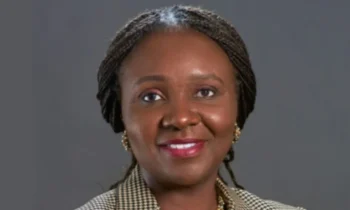
… will increase by 10-15 percent- -stakeholders
… castrate govt initiative which target 40% energy switch to use of cooking gas
Olusola Bello
Efforts by the Federal Government to increase the penetration of cooking gas otherwise known as Liquefied Natural Gas (LPG) among Nigerians may be in jeopardy as government policies have encumbered the progress of the initiative.
Government policies on Foreign Exchange which has made it difficult to be accessed by importers of cooking gas or LPG, Nigeria’s exchange rate which has plummeted, different levies introduced by the government, such as Petroleum Products Pricing Regulatory Agency’s(PPPRA) Admin Charge on LPG; various Department of Petroleum Resources (DPR) charges, and the recently introduced Value Added Tax (VAT) which is to be implemented by the Nigeria Customs Service on imported LPG which payment has been backdated, are big hurdles that are already in motion to castrate the initiative which is already gaining grounds across the country.
The federal government has set a target which aims at achieving a 40% energy switch from the consumption of petrol, kerosene and diesel to the use of LPG. Under the arrangement, efforts are being intensified to promote the wider use of LPG in vehicles, households, power generation and industrial applications.
According to the Federal Ministry of Petroleum Resources (FMPR), government has initiated the LPG Expansion Programme in order to effectively drive the switch to LPG consumption across the country.
The LPG Penetration Framework is designed to reduce the national energy consumption of petrol and diesel by achieving a 40% fuel switch to LPG in 10 years. The programme will also promote the wider use of LPG as Autogas, in households, power generation and industrial applications towards the attainment of five million metric tonnes domestic utilisation and creation of an estimated 500,000 job opportunities nationwide in five years. The programme was initiated in 2019.
The FMPR also stated that the LPG Penetration Programme is a component of Nigeria’s intended nationally designed contributions under the Paris agreement for reducing annual greenhouse gas emissions by the year 2020.
Government policies on Foreign Exchange which has made it difficult to be accessed by importers of cooking gas or LPG, Nigeria’s exchange rate which has plummeted, different levies introduced by the government, such as Petroleum Products Pricing Regulatory Agency’s(PPPRA) Admin Charge on LPG; various Department of Petroleum Resources (DPR) charges, and the recently introduced Value Added Tax (VAT) which is to be implemented by the Nigeria Customs Service on imported LPG which payment has been backdated, are big hurdles that are already in motion to castrate the initiative which is already gaining grounds across the country.
As part of government’s efforts to encourage Nigerians to key into the programme, skid tanks are introduced into a number of rural areas where gas is sold to the locals.
These policies are bound to increase the price of the commodity astronomically and a lot of Nigerians that have already embraced the programme, especially in semi urban areas may jettison the use of cooking gas and returned to using fire wood.
This would in return have dangerous health implications for Nigerians as well as serious environmental consequences. Also the middle class people among whom the commodity has become popular may begin to look for alternatives to cooking gas because of high cost of the commodity.
But the Federal Government says it is doing something about the issue so as not allow it efforts to waste because of high price of the commodity.
Dayo Adesina, Special Adviser to the President on LPG told Business Standards that the government is working assiduously to look for additional sources of LPG in the country to reduce the foreign exchange component of the price.
On the issue of introduction of VAT which Nigeria Customs Service backdated its payments, he said, that was just brought to the attention of the government last week and that it would address it appropriately.
“We are looking at it is not self sufficient and had to import to augment the supplies from Nigeria Liquefied Natural Gas Limited through import that is why it is affected by Foreign Exchange. I am sure when we are able to find additional sources and there is competition, the price would come down. The NLNG was only able to provide 450,000 tons last year and the consumption of the country has hit over 1 million metric ton per annum. We are not happy that the price of the product has increased,” he said.
cost
The price of 12.5 kg cylinder at one of the depots in Apapa, Lagos moved from about N2.800, at the beginning of the year to N3, 200 and now N4, 650.
Early last year retail price of the same 12.5kg in a number of places in Lagos and its environs was N4000 and by November 2020 it jumped to N4, 800 and now it to aboutN5, 300 or N5, 700 depending on which area the person reside. The 3kg was selling for N900 now sells for 1,200 while 6kg sells for N 2000.
An of officer of one of the depots that also spoke to Businessstandardsng.com on the issue said that the price of 20,000 metric tons of LPG that was N5.9 million some three weeks ago, is now N 7.1 million.
This will increase by the time the VAT is being implemented.
AbdulWasiu O. Sowami Founder of Prudent Energy & Services Limited which LPG depots at Oghara in Delta state confirmed introduction VAT, but said scarcity of foreign Exchange is at this moment what is responsible for increase in the price of the commodity.
He however stated that by the time VAT is implemented the current price of LPG would increase by about 10 to 15 percent.
He said quantity of the product produced in- country is about 55 percent while the balance is imported. The non availability of foreign exchange to bring in the balance, he said, is what is creating the crisis currently going in the subsector.
Demand he said is higher than supply, he said.
In his comment, Felix Ekundayo, chief executive officer, Gas Terminally, he said the International prices are rising as demand spikes following Covid19.
In the same vein Nigeria’s exchange rate has plummeted, while the different levies introduced by the government, such as LPG: PPPRA Admin Charge; VAT on LPG; various DPR Charges have all added up to increase the price of the commodity.





